On June 10, the National Assembly discussed in groups the draft Law on Telecommunications (amended). National Assembly Chairman Vuong Dinh Hue emphasized that in the world, there are two transformations that no one can stand outside of: energy transformation and digital transformation.
In particular, digital transformation is related to national digital sovereignty, safety, and non-traditional security, with many opportunities but also great challenges. "The Telecommunications Law, in a broader view, will create a foundation for digital transformation, towards a digital society and digital citizens," the National Assembly Chairman emphasized.
Focusing on big policies will make the law last longer.
The National Assembly Chairman reviewed a number of recently amended laws related to digital transformation and affirmed that the amendment of the Telecommunications Law is part of the overall service for digital transformation, placed in the overall to be consistent with other laws.
According to the National Assembly Chairman, the 2009 Telecommunications Law mainly focuses on regulating "telecommunications business activities", while this draft defines it more broadly as "telecommunications activities".
Telecommunications activities are not simply pure business. They include the right to participate in telecommunications activities; the right to ensure telecommunications safety, both for service providers and users; the issue of fair competition in telecommunications activities...
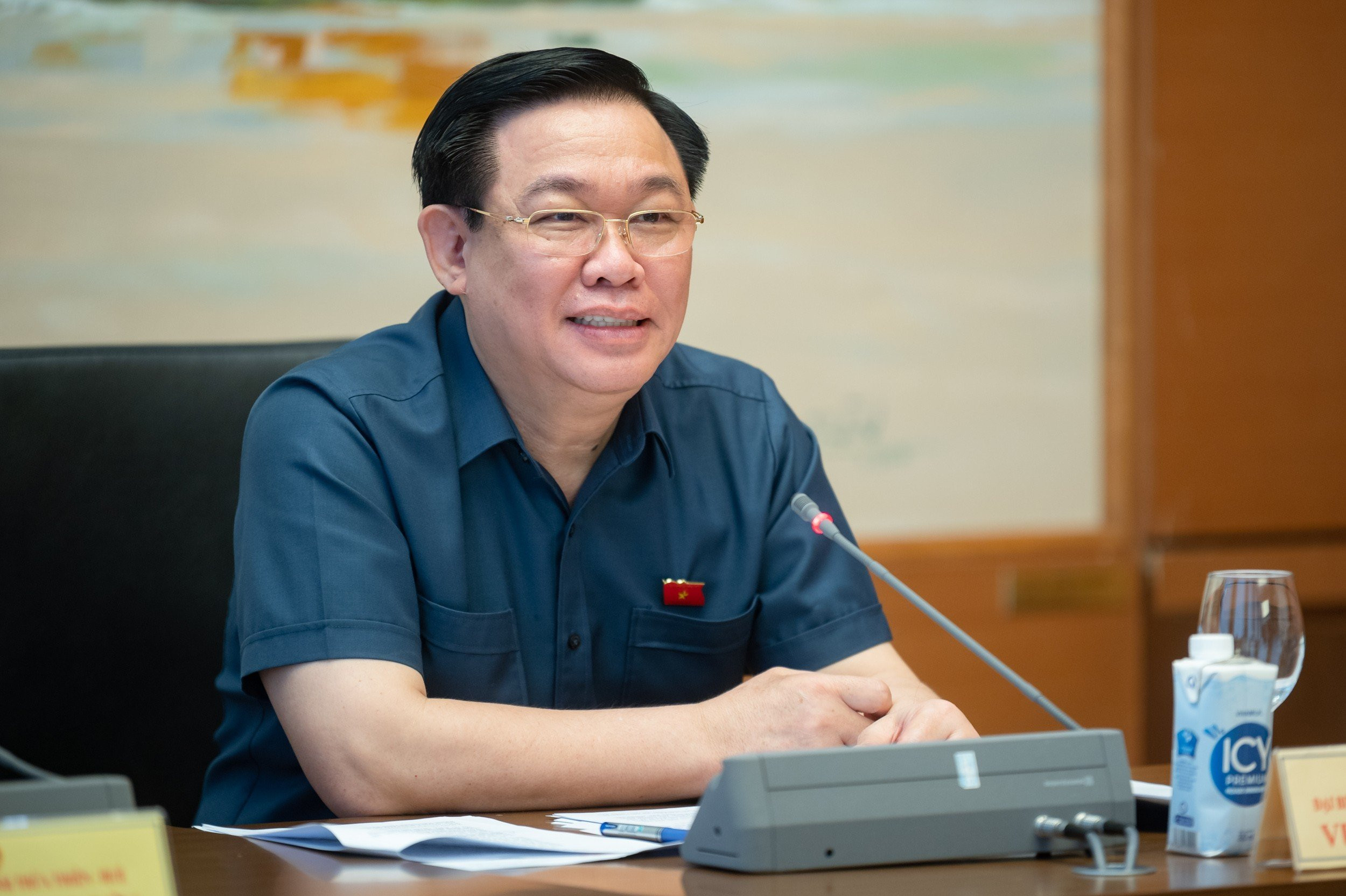
The National Assembly Chairman acknowledged that the drafting committee has made many efforts in this direction, including very good provisions, but it is necessary to focus on major policies for the law to have a long life.
Noting that this law has cross-border issues, both domestically and internationally, the National Assembly Chairman emphasized: "Digital transformation is related to national digital sovereignty, information security and safety, and latecomers like us have opportunities."
Regarding international commitments, the National Assembly Chairman pointed out that there are 5 groups that need to be reviewed to complete the draft Law on Telecommunications (amended), including: Commitment to open the market; Commitment to institutions and the telecommunications business environment; Commitments related to international law in general; Regulations on procedures at forums and professional organizations; Concepts in the telecommunications field that have been defined in international treaties.
Going into specific content, National Assembly Chairman Vuong Dinh Hue said that data centers, cloud computing services, and OTT are increasingly popular, greatly affecting social life, rights and interests of individuals and organizations.
In the draft law, some countries such as China, Thailand, and South Korea have built this law with the nature of telecommunications services, so the addition is necessary to ensure national interests and consumer interests. This is the viewpoint of the drafting agency.
Another opinion suggested considering including these three services in the draft Law on Telecommunications (amended) at an appropriate level, ensuring encouragement for the development of telecommunications technology, without affecting foreign investment attraction activities in Vietnam.
This opinion also suggests studying international experience to more specifically regulate the business of data centers, cloud computing services, and OTT in terms of management levels and conditions.
“I personally and the National Assembly Standing Committee follow this direction,” said the National Assembly Chairman. He noted that inappropriate regulations will be very complicated to implement. Therefore, the bill must have a comprehensive view.
“Don’t think that technical laws like this don’t have a big impact, this is a game that countries are very interested in. The important thing when building laws is to follow the big picture, then the technical design won’t be too difficult,” Mr. Vuong Dinh Hue emphasized.
Some other opinions expressed concerns about the way services are provided as stipulated in the draft Law because the management and provision of OTT services is still a controversial topic in many countries.
Law amendment is “absolutely necessary”
Delegate Hoang Duc Thang (Quang Tri) commented that the 2009 Telecommunications Law has been implemented for 13 years now, with a relatively good "lifespan".
According to a delegate from Quang Tri province, the telecommunications sector moves very quickly each year, technology has come a long way, but the legal framework was issued a long time ago, so this amendment is "very necessary".
According to Mr. Thang, the overview of the draft Law on Telecommunications (amended) has "touched" the basics from the scope of regulation to the rights of organizations and individuals participating in telecommunications activities...
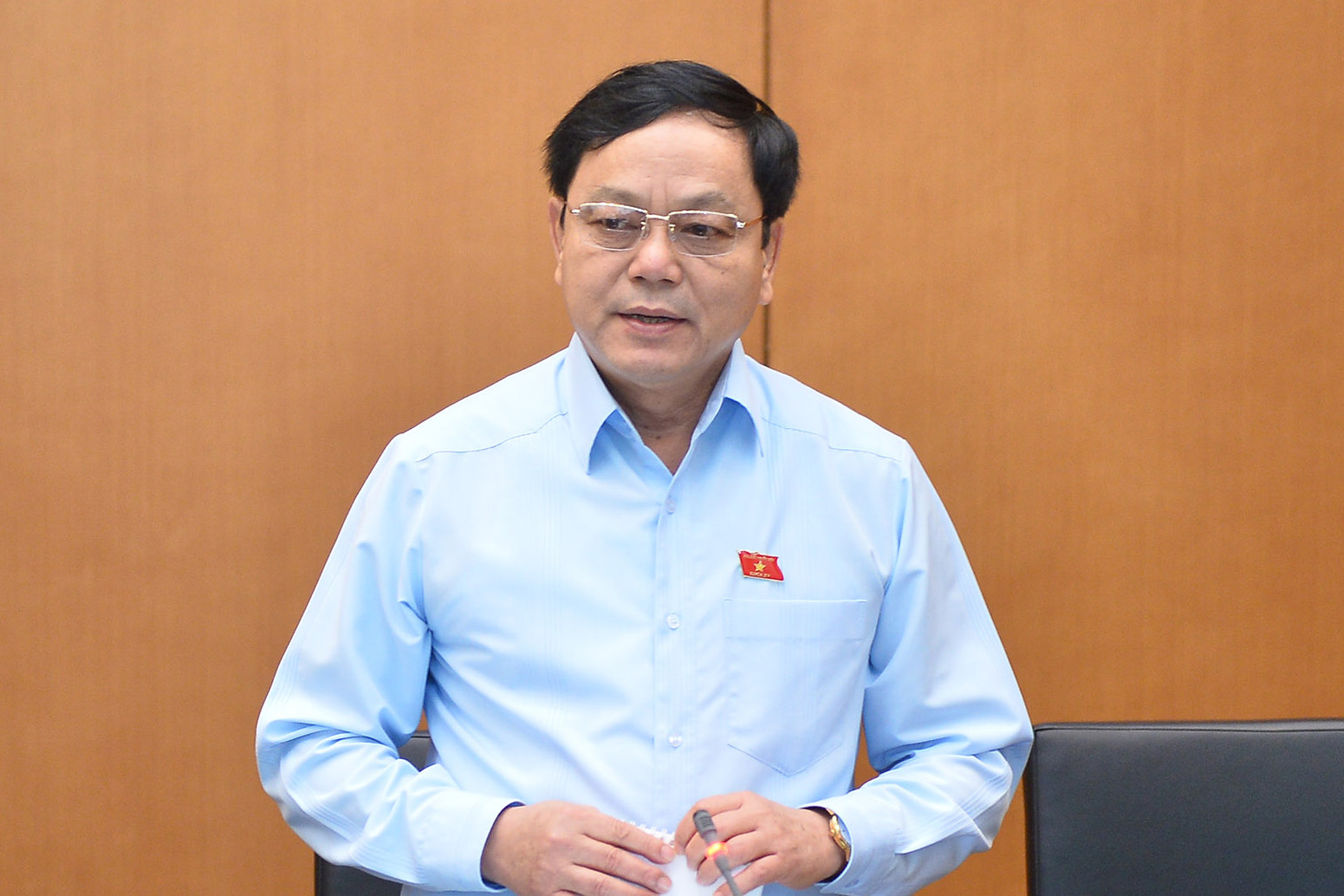
Believing that the draft is still heavily focused on telecommunications business, and other contents are not clearly expressed, delegates suggested that the drafting agency review the chapters and articles to make appropriate adjustments.
Regarding Article 4 on the State's policy on telecommunications "creating conditions for organizations and all economic sectors to participate in telecommunications investment and business to create a breakthrough in telecommunications infrastructure development", the delegate commented that the word "breakthrough" is not the language of the law but is similar to a resolution or action program, so this word should not be used.
Speaking at the Hanoi delegation, delegate Ta Dinh Thi (Deputy Chairman of the National Assembly's Committee for Science, Technology and Environment) said that the Resolution of the 13th Central Committee on continuing to promote industrialization and modernization of the country until 2030, with a vision to 2045, identified digital infrastructure as essential and ensuring network information security as key, going fast and going first.
According to the Hanoi delegation, the goal is for the digital economy to account for about 20% by 2025. Along with that, we also set a goal of digital society, which includes digital citizens and digital society.
“To achieve such goals, we must build institutions and the Telecommunications Law is part of that plan,” said delegate Ta Dinh Thi.
According to Mr. Thi, in the process of summarizing the 2009 Telecommunications Law, it has pointed out the necessary contents that need to be revised and supplemented to meet practical requirements.
In the review report, the Committee on Science, Technology and Environment emphasized that the content of this law amendment is to expand the scope of regulation to contents such as: Data center services; Cloud computing; Telecommunication services to suit the new development context.
"In the draft Law, I see these contents basically meet the requirements," said Mr. Thi.
Delegate Ly Van Huan, Deputy Chief Prosecutor of Thai Nguyen Provincial People's Procuracy, proposed to add to the prohibitions some acts: "Taking advantage of positions and powers related to leaking information"; "using techniques to interfere with telecommunications activities"...
In addition, he also pointed out the fact that through prosecution and trial activities, many crimes related to telecommunications activities, although the investigation agency, the People's Procuracy, and the court requested to provide documents, were very slow. This caused great difficulties for the investigation agency.
“For example, with online fraud crimes, personal identification information, banking activities, etc., the investigating agency really wants to be provided promptly, but the agencies provide it very slowly, leading to ineffective investigations,” delegate Huan cited.
Therefore, delegate Huan expressed his wish that this law stipulates that when requested by the prosecution agencies, state agencies, including telecommunications, must provide information promptly and within a clear deadline to ensure the progress of the investigation.
Source



![[Photo] General Secretary To Lam receives French Ambassador to Vietnam Olivier Brochet](https://vstatic.vietnam.vn/vietnam/resource/IMAGE/2025/4/17/49224f0f12e84b66a73b17eb251f7278)
![[Photo] Promoting friendship, solidarity and cooperation between the armies and people of the two countries](https://vstatic.vietnam.vn/vietnam/resource/IMAGE/2025/4/17/0c4d087864f14092aed77252590b6bae)
![[Photo] Nhan Dan Newspaper announces the project "Love Vietnam so much"](https://vstatic.vietnam.vn/vietnam/resource/IMAGE/2025/4/17/362f882012d3432783fc92fab1b3e980)
![[Photo] Closing of the 4th Summit of the Partnership for Green Growth and the Global Goals](https://vstatic.vietnam.vn/vietnam/resource/IMAGE/2025/4/17/c0a0df9852c84e58be0a8b939189c85a)
![[Photo] National Assembly Chairman Tran Thanh Man meets with outstanding workers in the oil and gas industry](https://vstatic.vietnam.vn/vietnam/resource/IMAGE/2025/4/17/1d0de4026b75434ab34279624db7ee4a)
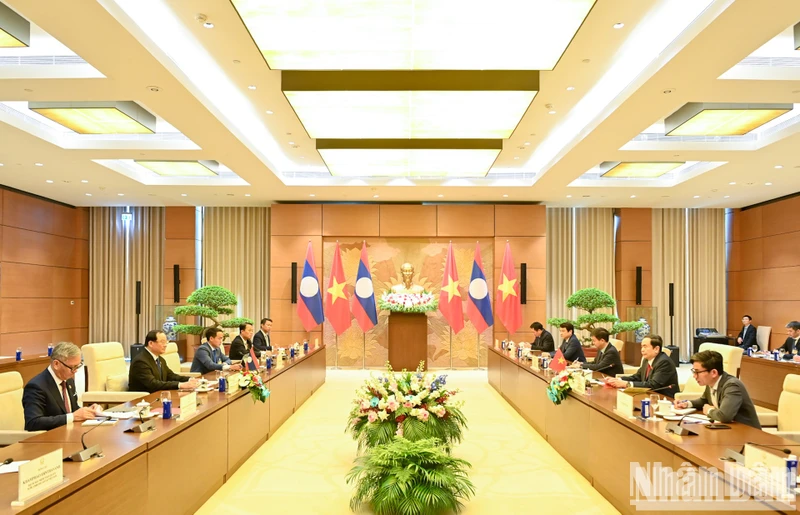

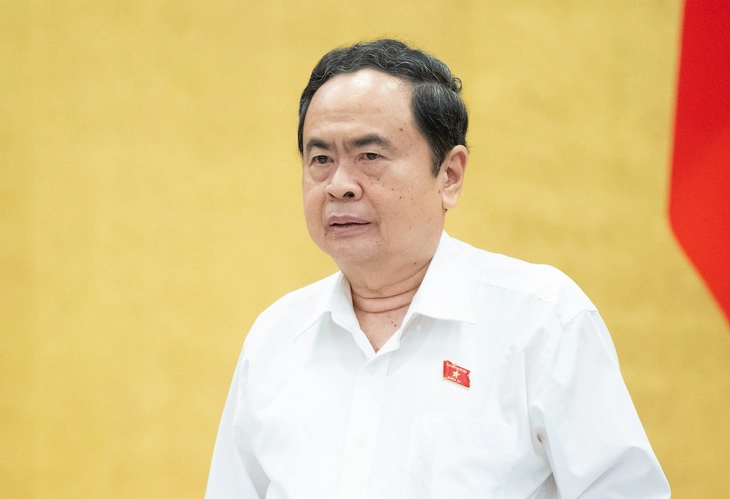

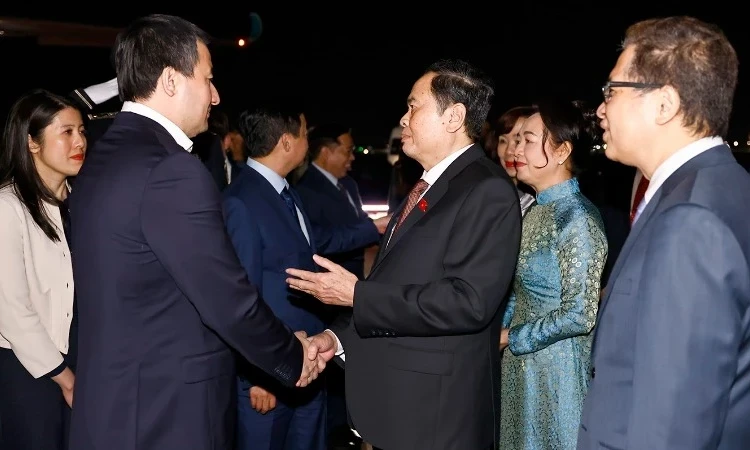

![[Photo] National Assembly Chairman successfully concludes official visit to Uzbekistan](https://vstatic.vietnam.vn/vietnam/resource/IMAGE/2025/4/9/8a520935176a424b87ce28aedcab6ee9)
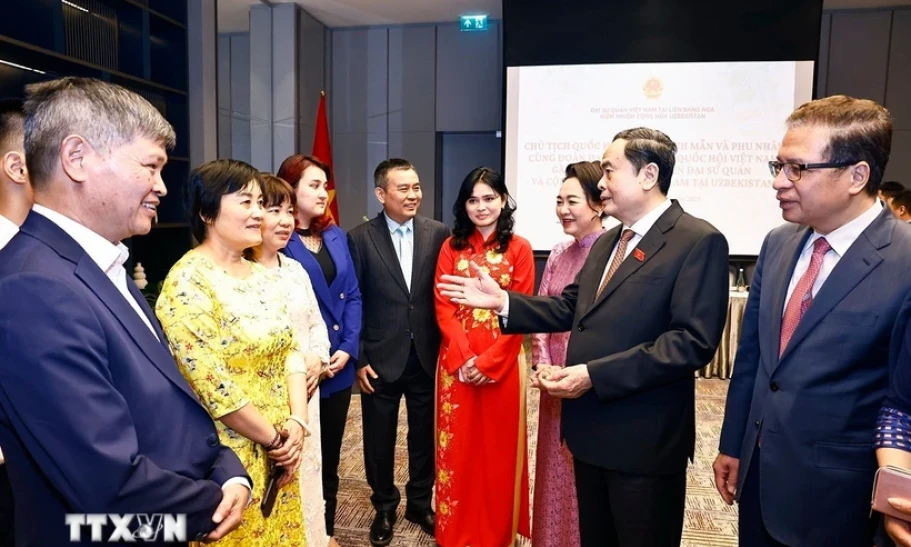
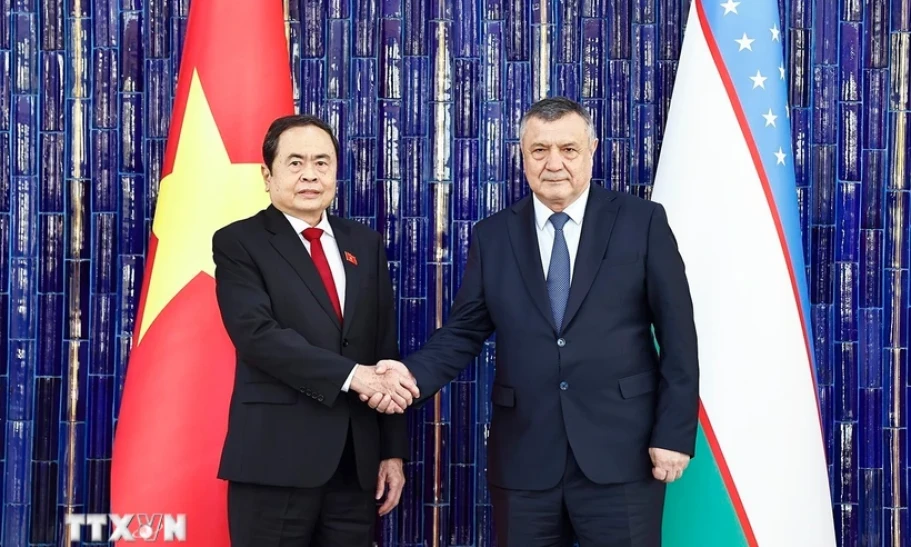
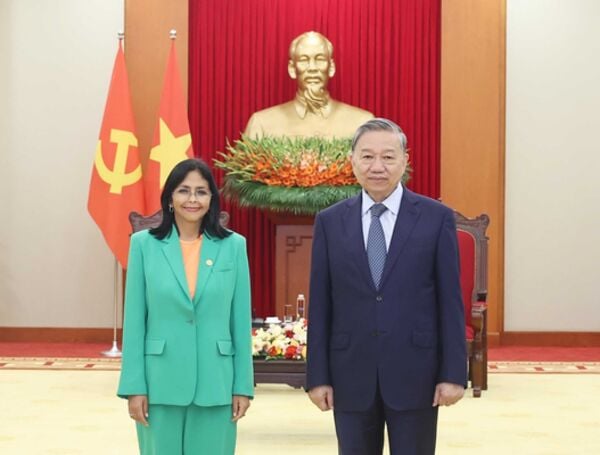


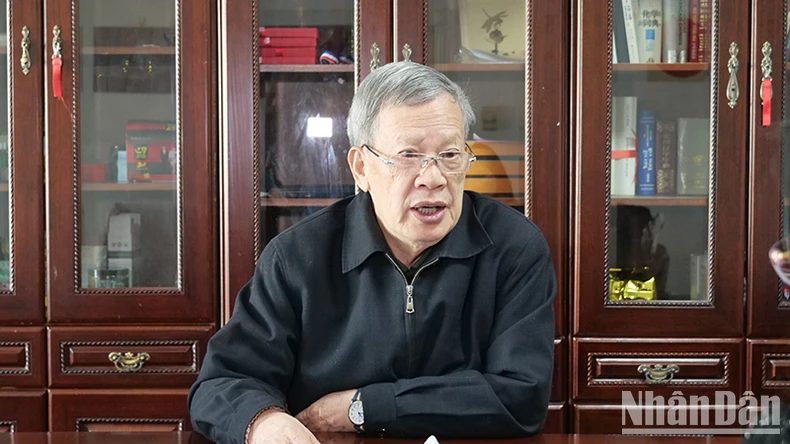

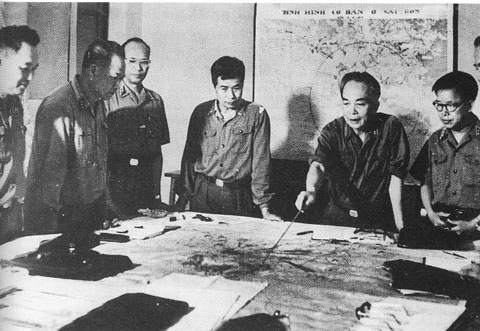





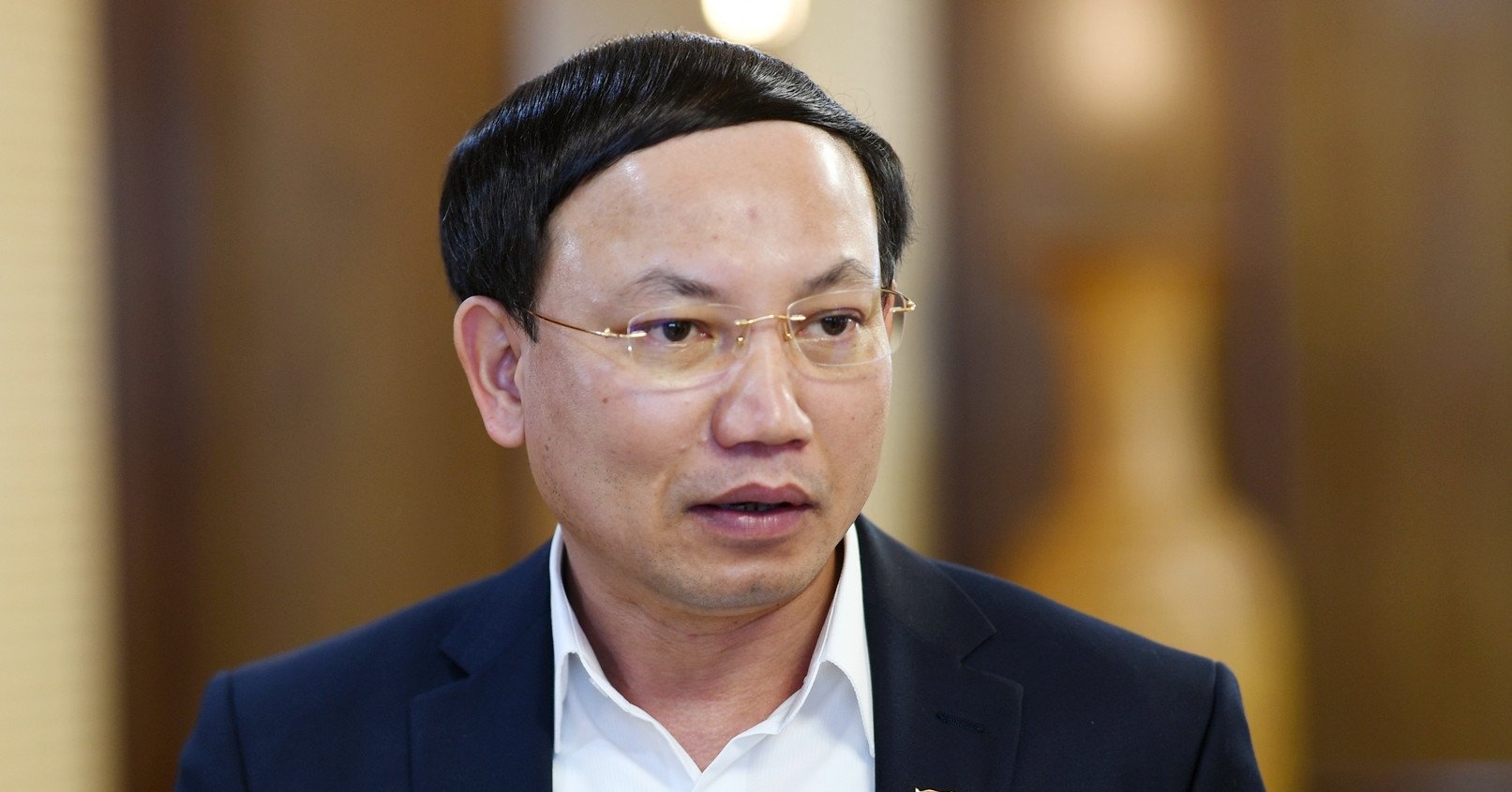

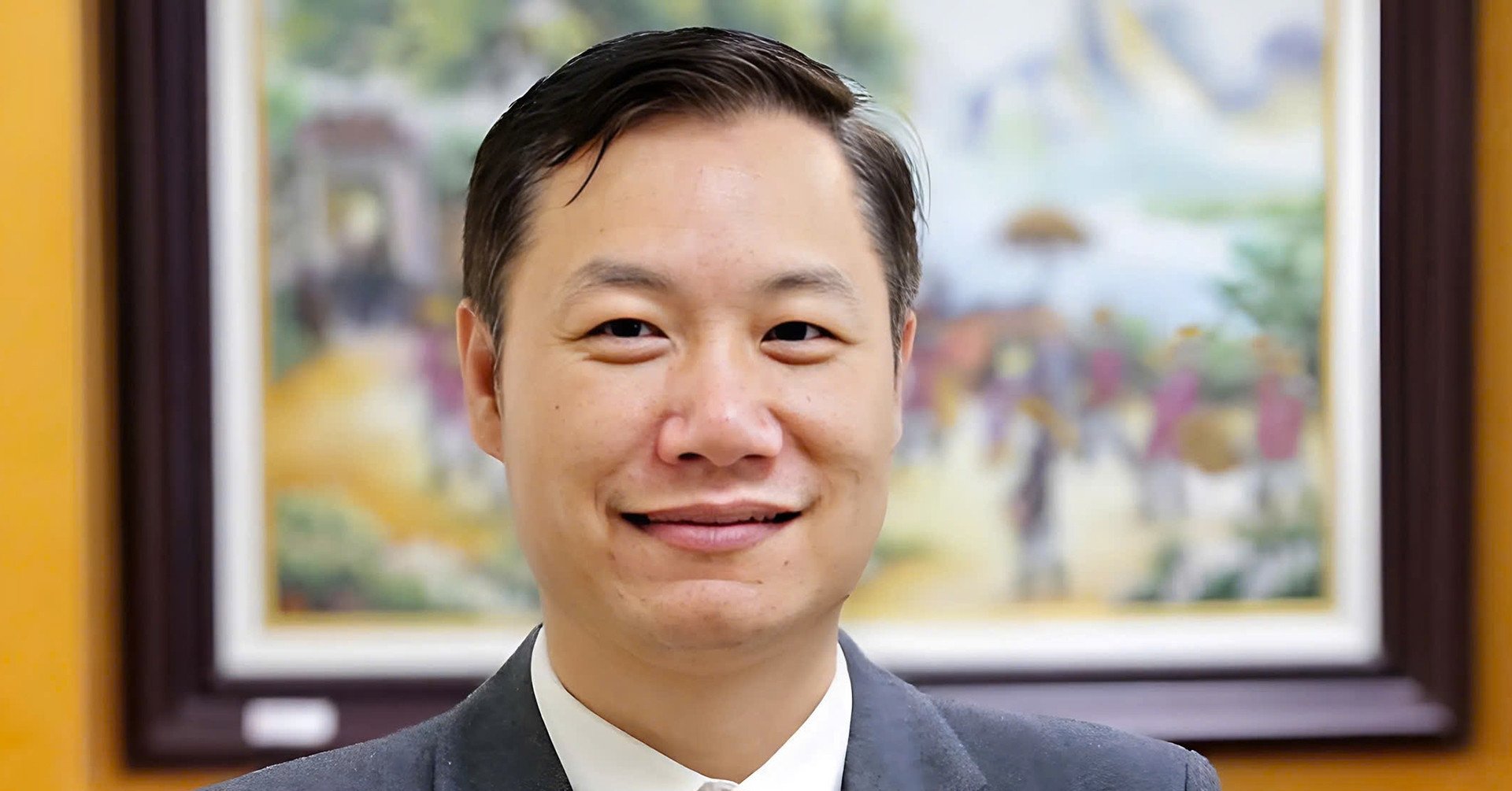


![[Photo] Welcoming ceremony for Chinese Defense Minister and delegation for friendship exchange](https://vstatic.vietnam.vn/vietnam/resource/IMAGE/2025/4/17/fadd533046594e5cacbb28de4c4d5655)






















![[Video] Viettel officially puts into operation the largest submarine optical cable line in Vietnam](https://vstatic.vietnam.vn/vietnam/resource/IMAGE/2025/4/17/f19008c6010c4a538cc422cb791ca0a1)


















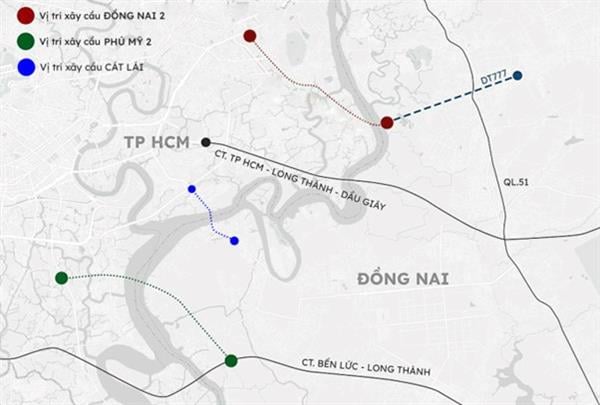



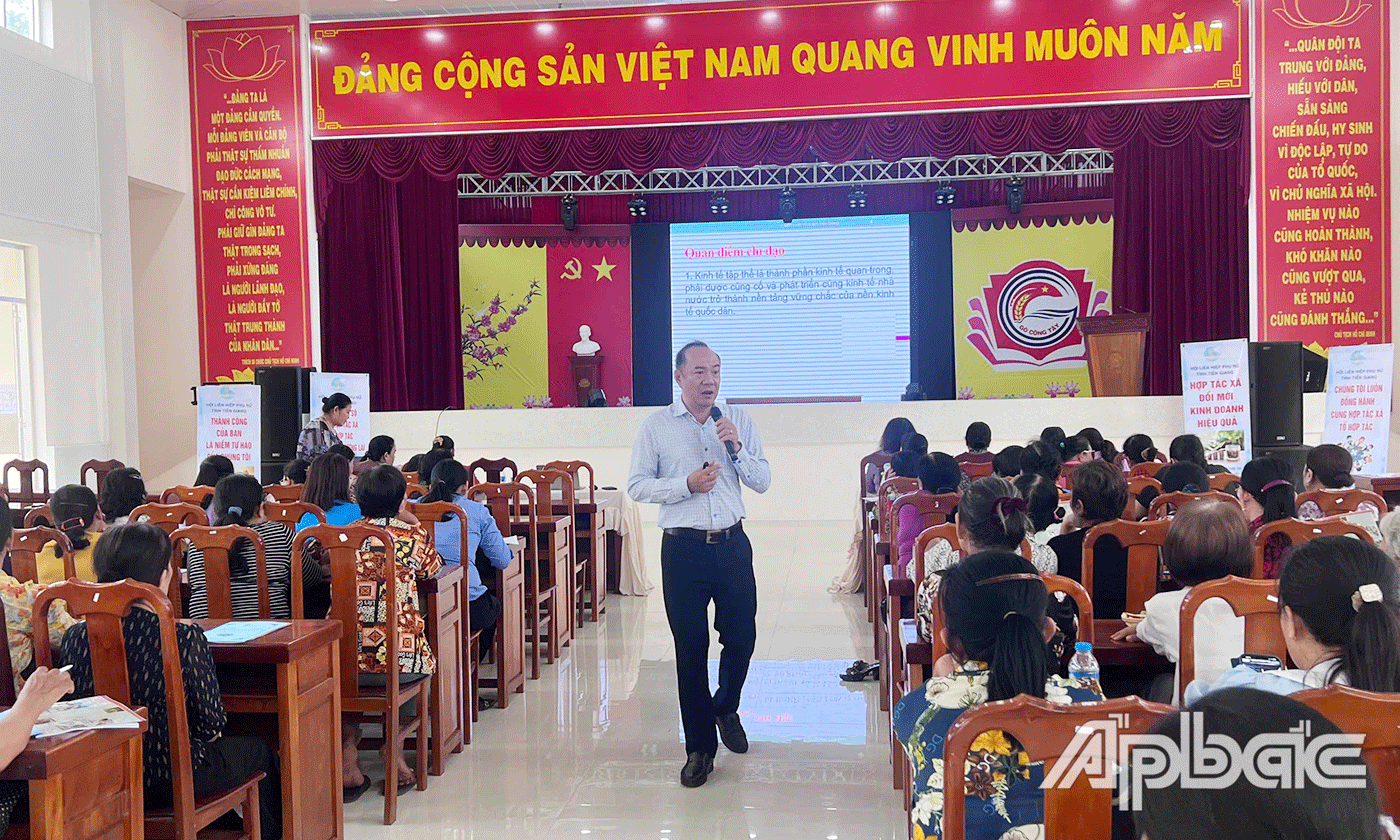

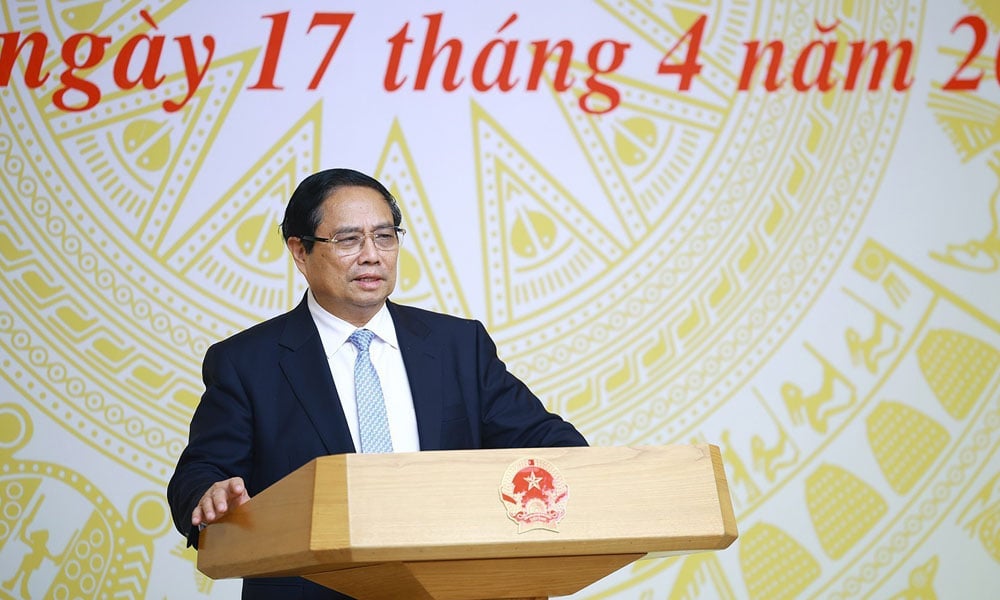


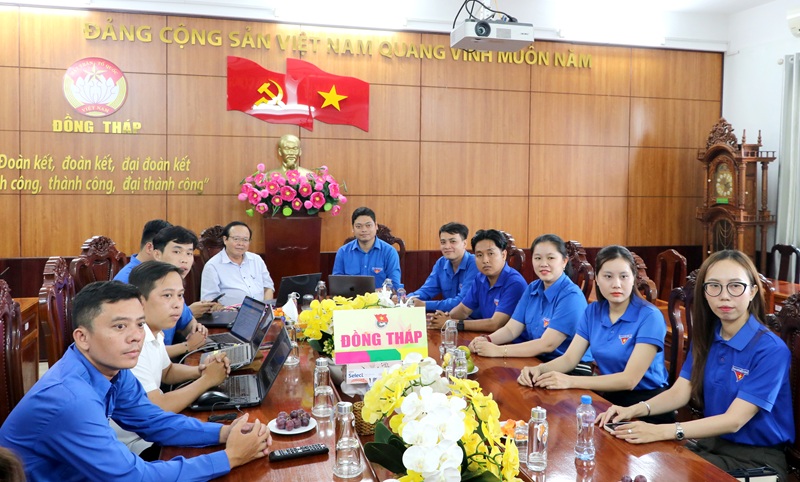











Comment (0)